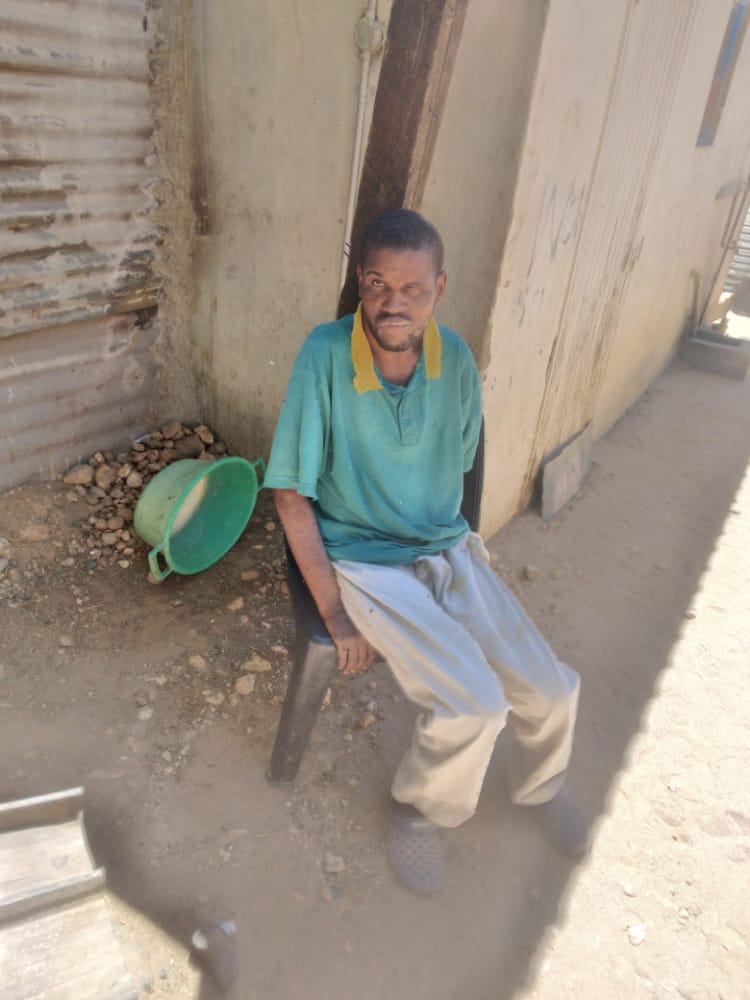The gender ministry has said people with serious mental illnesses have considerable problems with money mismanagement, including being ripped off by friends, relatives or acquaintances.
However, the ministry cannot do much without the community’s help.
The comments follow an article ‘Man Starves in a Tiny Cubicle Despite Social Grant’, published by New Era last November, of a young man, whose mental condition is yet to be established, who has reportedly been living in perpetual isolation, with several community members accusing his family of gross negligence.
Community members who spoke to New Era on condition of anonymity relayed harrowing tales, including allegations of starvation and neglect.
This publication has learned that the man, thought to be in his late 20s, lives in Ombili in the capital with his aunt and siblings.
The 29-year-old Josef Shikongo is being kept alone in a tiny cubicle behind the house that has a wooden bed without a mattress.
Although he can walk, the man hardly goes outside, except when he is extremely hungry.
Even then, he seldom ventures beyond the doorstep of his tiny cubicle.
According to neighbours, he has, for years, been in solitary confinement as if he is not part of the family.
Shikongo’s parents have died.
People in the know say he has not been toilet-trained and sometimes soils himself to his aunt’s chagrin.
To avoid cleaning, the aunt, whom sources say has a mercurial temper, has resolved to keep the amount of food she gives him to the barest minimum.
A neighbour said, “the mother believes that if he is given too much food, he will s**t himself, and then she has to clean up.”
Another community member said Shikongo is registered for a social grant and receives that money from the government.
The aunt, who is his guardian, receives it on his behalf every month.
“The only time that he is bathed is when she has to take him with her to collect the monthly stipend. Otherwise, he stays in his tiny room without being bathed,” said a close source.
Acting executive director in the ministry Martha Mbombo, in response to New Era queries, indicated that the ministry has 47 873 beneficiaries recorded in their database.
“Each beneficiary is free to use any payment method they like, such as their private bank account, a smart card account at Nampost, cash payments or payments through other institutions.
“In each instance, there is a level of security to ensure the money reaches the intended beneficiary. When it comes to bank accounts, each bank has its unique security mechanism,” she indicated.
She further stated that in terms of the Nampost Smart Card and the cash payment mode, biometric verification systems are used.
In the case of institutions, the head of the facility is in charge of distributing the grant and submitting the necessary reconciliation reports.
The reconciliation team of the ministry assess the reconciliation reports monthly.
Mbombo, therefore, said to reinforce the government’s efforts and guarantee that appropriate measures are implemented in cases of abuse, the ministry encouraged all members of the public to contact the Ministry of Health and Social Services’ social workers or the nearest police station.
The acting director could not answer the queries on the measures they will take in this instance.



